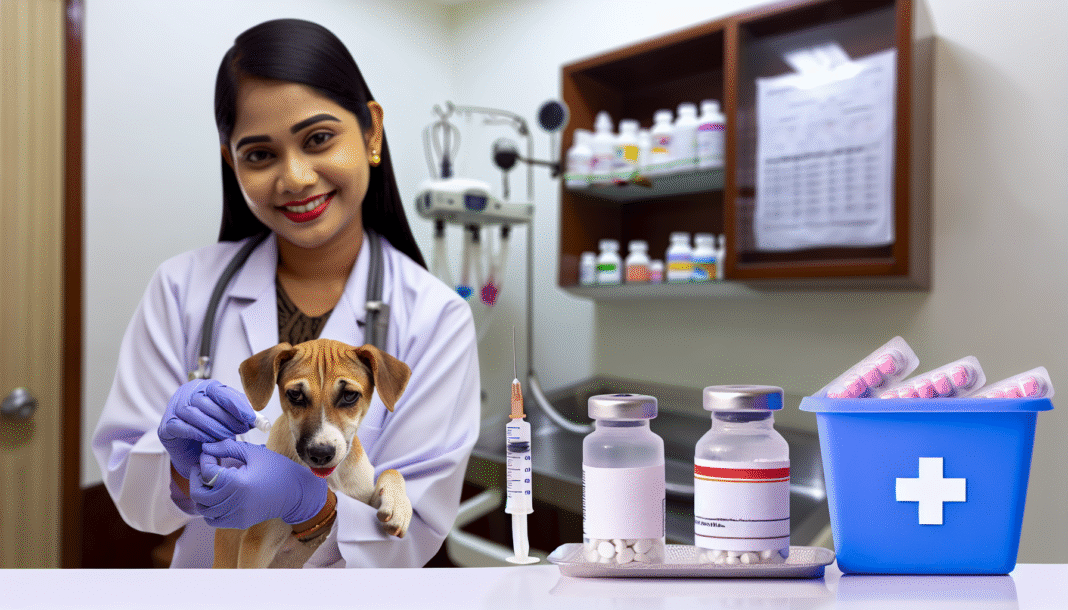As pet owners, our priorities revolve around keeping our furry friends healthy and happy. A significant aspect of pet health care is understanding medications that may be necessary for their well-being. This guide will help you navigate the intricate world of pet medications, ensuring you make informed decisions for your beloved companion.
Understanding Pet Medications
Pet medications can encompass a wide range of treatments, including prescription drugs, over-the-counter (OTC) medications, and natural remedies. Understanding the types of medications available and their intended use is the first step in responsible pet care.
Types of Medications
-
Prescription Medications: These are specifically prescribed by a veterinarian for various conditions, including infections, chronic illnesses, or post-surgical recovery.
-
Over-the-Counter (OTC) Medications: These can be found in pet stores or online and often address minor health issues like allergies, digestive problems, or flea and tick prevention.
- Natural Remedies: Some pet owners opt for holistic approaches, incorporating herbal treatments or dietary supplements to support their pet’s overall health.
Common Causes for Medication Needs
Various health issues can necessitate medication for pets. Here are some of the most common causes:
1. Infections
Bacterial, viral, or fungal infections can affect pets, requiring antibiotics or antifungal medications. Symptoms may include lethargy, loss of appetite, and unusual behavior.
2. Allergies
Pets can suffer from allergies just like humans. Common allergens include pollen, dust, certain foods, and flea bites. Treatments may involve antihistamines or corticosteroids.
3. Chronic Conditions
Conditions like arthritis, diabetes, or heart disease can require long-term medication. Signs may include changes in mobility, excessive drinking or urination, or coughing.
Symptoms to Watch For
Recognizing the symptoms that indicate your pet may need medication is crucial. Here are some signs to monitor:
-
Changes in Eating or Drinking Habits: Sudden changes in appetite or thirst may signal health issues.
-
Lethargy or Behavioral Changes: If your pet is more tired than usual or shows altered behavior, it might be time for a veterinary visit.
- Vomiting or Diarrhea: Gastrointestinal issues can indicate infections or dietary problems that may require medication.
When to See a Veterinarian
If you notice any of these symptoms, schedule an appointment with your veterinarian. They may conduct a physical exam and additional tests to diagnose your pet’s condition accurately.
Diagnosis: The Importance of Veterinary Guidance
Diagnosing your pet’s health issues requires a professional’s expertise. A veterinarian will perform various tests, such as blood tests, urinalysis, and imaging, to determine whether medication is necessary and which type is most appropriate.
Common Diagnostic Procedures
-
Physical Examination: A thorough check-up may reveal external signs of illness.
-
Blood Tests: These help assess organ function and detect abnormalities.
- X-rays or Ultrasound: Imaging can provide information about internal conditions affecting your pet.
Treatment Options: Choosing the Right Medication
Once a diagnosis is made, your veterinarian will recommend the best course of treatment, which may include medication. Always discuss potential side effects and the duration of treatment to ensure you’re fully informed.
Important Tips for Administering Pet Medications
-
Follow Dosage Instructions: Always adhere to your vet’s prescribed dosage and schedule. Using a pill organizer may help manage daily doses.
-
Monitor for Side Effects: Keep an eye on your pet for any adverse reactions, such as gastrointestinal upset or changes in behavior.
- Use Proper Administration Techniques: Whether your pet needs pills, liquids, or topical treatments, ensuring correct administration is crucial. Using a pill pocket or hiding medication in food can make the process easier.
Preventive Measures to Reduce Medication Needs
Preventing health issues can reduce the need for medications. Here are some effective strategies:
-
Regular Check-ups: Routine veterinary visits can catch potential health issues early.
-
Vaccination: Keeping immunizations up-to-date can prevent diseases like parvovirus or distemper.
-
Healthy Diet and Exercise: A balanced diet and regular exercise can help maintain your pet’s overall health, preventing obesity and related conditions.
- Parasite Prevention: Flea and tick prevention is essential, as these parasites can cause severe health issues.
Natural Alternatives to Traditional Medications
For pet owners seeking natural remedies, several alternatives may support your pet’s health without pharmaceutical intervention. Some examples include:
-
Omega-3 Fatty Acids: Known to support skin health and reduce inflammation.
-
Probiotics: Useful for digestive health and maintaining gut flora balance.
- Herbal Supplements: Certain herbs, like ginger and turmeric, may provide soothing benefits for various ailments.
The Role of Pet Owners in Medication Management
As a responsible pet owner, your involvement in your pet’s medication journey is paramount. Keeping track of health records, understanding medication routines, and maintaining open communication with your veterinarian can significantly improve your pet’s health outcomes.
Staying Informed
Staying educated about your pet’s specific health needs and potential medications can empower you in decision-making. Don’t hesitate to ask your veterinarian questions during appointments, as they can provide valuable insights tailored to your pet’s unique situation.
Final Remarks on Pet Medication Safety
Pet medication can be a lifeline for many health challenges, but it’s essential to approach it with caution and care. By staying informed and working closely with your veterinarian, you can ensure that your furry friend receives the best possible care without unnecessary risks.





